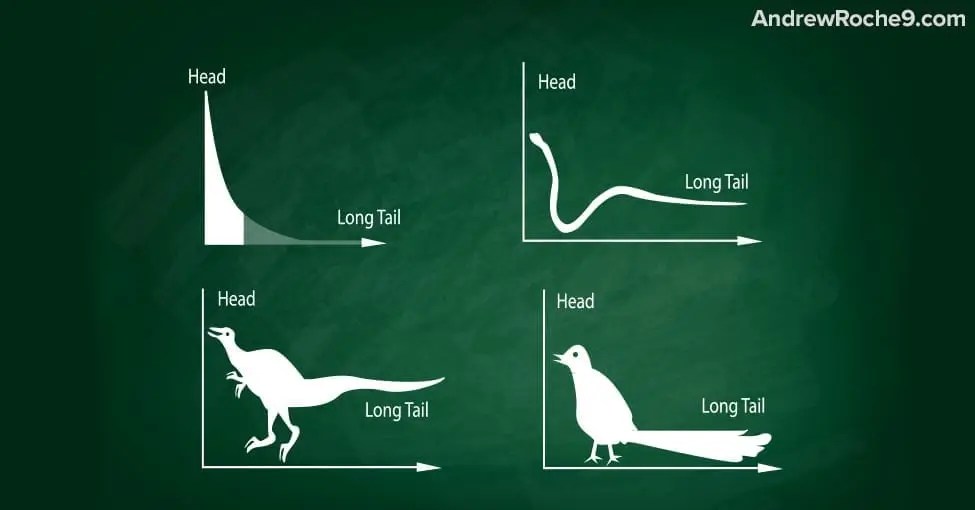Longtail keywords provide several benefits. One such benefit is that incorporating longtail keywords is a surefire method to improve your SEO strategy.
Longtail keywords are keywords – or keyphrases – that are more pointed than short-tail keywords. Furthermore, they’re typically longer than more commonly used keywords. While longtail keywords often garner less traffic, they almost always have a higher conversion rate since they’re more specific. Longtail keywords allow you to attract more traffic to your site slowly. However, it is far less expensive to compete for longtail keywords than to go after short-tail keywords.
A major benefit of long-tail keywords is that they help when there is a lot of competition in your market. Long-tail keywords also help when there’s a lot of competition for the keywords you want to rank. Both companies and blogs will benefit from long-tail keywords since they attract visitors who know what they want to find. This post will accomplish two main goals:
- I will explain what long-tail keywords are
- How an understanding of your mission and product can help you develop a long-tail strategy
What are Longtail Keywords?
Longtail keywords are more pointed and less common than other – more basic – keywords. It is helpful to think of longtail keywords as niche keywords. Rather than covering a broad topic, longtail keywords typically point toward posts with a particular purpose or intent.
Chris Anderson coined the term longtail keyword in his book, The Long Tail. In The Long Tail, Anderson shows that there’s a market for virtually any product. The market for a product may be tiny in some cases. However, the vastness of the internet makes your niche product or blog post profitable nonetheless.
You Only Need One Keyword to Benefit from Longtail Keywords
The majority of blogs have one central topic. Most typically refer to this central topic as the head term or main keyword. For instance, food blogs are typically about eating, restaurants, recipes, and mom blogs are about family life. Take my blog, for instance. It’s all about digital marketing and leadership.
Your blog or site’s main topic is the number one keyword you want to be found. In my case, the keywords are obviously digital marketing and leadership. Naturally, I don’t rank on the first page for either term (yet!). However, it’s important to keep in mind that I’m not a powerhouse like Hubspot or Yoast. I’m just one guy, and this blog is a hobby of sorts. However, I’ve come to understand the benefits associated with longtail keywords. Someone with a blog about homemade Italian food will likely want to rank for “homemade Italian food.” Thus, “homemade Italian food” would be the number one keyphrase for their blog.

Lots of Tail Topics
It would help if you didn’t optimize all of your blog posts for the same keyphrase. This remains true even if all the blog posts are about Italian food. Instead, write a ton of posts about all kinds of longtail variants of your main keyword. Keeping with the homemade Italian food theme, you could write about all sorts of delectable dishes. Some of these could include homemade Italian pasta, homemade Italian salads, and even homemade Italian pie!
You can take your posts even further and make them even more longtail! You could write about homemade Italian spaghetti bolognese, homemade Italian lasagna, homemade Italian penne carbonara, and so on. All of these longtail keyphrases will pop up when you conduct proper keyword research. Your keyphrases mustn’t be too long, so you should aim to keep them under 6-7 words max.
Link from the Tail to the Head and Reap the Benefits
If you optimize your blog posts for longtail variants, you should link from the individual posts to your category pages. It would help if you then linked from said category pages to your best-performing pages. Remember. It would be best if you linked your ‘tail’ articles to your ‘head’ articles. In doing so, you’re showing Google what your site structure looks like and which of your pages are most important. Furthermore, linking your tail posts to your head posts will help your head posts rank higher on Google!
Why Focus on Longtail Keywords?
It’s wicked easier to rank for longtail keywords than to rank for more common short-tail keywords. This is due primarily to the fact that few websites compete for the top spots held by longtail keywords. The longer (and more specific) your search terms, the easier it is to rank. Due to the internet’s vastness, it’s easier to find your audience for your specific niche. You can yield a great deal of traffic altogether by focusing on a group of longtail keywords.
Another key benefit of focusing on longtail keywords is that the visitors who find your website using them are more likely to purchase your product or service.
Let’s say you’re on the hunt for a new board game for a family fun night with your kids. You’ll likely start by searching for a broad term such as ‘board games.’ You quickly realize that you want a board game that is both meant for kids and contains an educational element. You continue to search, but this time you search ‘educational board game for kids.’ Lastly, you realize that you’ll be in Chicago that week. Knowing that, you then search ‘where to buy an educational board game for kids in Chicago.’ Both of these are long-tail keywords and will yield new results that more closely resemble your search intent. Furthermore, the odds that you’ll buy a board game have increased greatly by refining your search terms.

Why is Your Mission Important?
First off, if you want to sell something, it helps if you have a stellar product. Furthermore, it would be best to have a good idea of your product or website to offer your target audience. What about your product or blog makes it so special? How is it different from the rest of the white noise out there? If you truly know and understand your product, it will be much easier to convince your audience to like and purchase what you have to offer. That being said, take some time to think about what makes your product unique and write it down.
Let’s say, for instance, that you sell furniture. You offer one-of-a-kind pieces made from recycled materials and leave a small carbon footprint. In this case, selling unique furniture pieces that are eco-friendly can serve as your service’s unique element. This is your mission…your niche…this is what you have to offer your audience. You best make sure to write down your mission in terms that your audience can use and understand.
Competitiveness of the Market
It’s wicked hard to rank in certain markets. Some markets are very competitive, with large firms dominating the search results. These companies typically have a pile of cash to spend on marketing in general and SEO specifically. Ranking in these markets is flat out hard. You will not be able to compete on a small budget in these markets. This is especially true of the furniture industry if you use broad terms such as ‘quality furniture.’
However, if you have a clear mission, you can then define your product. Better yet, you can differentiate your offering from the rest of the market. Doing so allows you to find your niche. Furthermore, you should use your mission to start ranking.
Use Your Mission to Define Longtail Keywords
Your mission, in which you make it crystal clear what the awesomeness of your product, site, or blog is, should be central in choosing the longtail keywords for which you want to rank. You can employ the terms you used to describe your mission to serve as your SEO strategy’s focal point. These words should be central in the longtail keywords for which you want your website to rank.
With your mission clearly stated and written down, you’ve already completed the first step in your initial round of keyword research. The next step is creating a list of keywords. Do your best to get into your audiences’ heads. What will they be looking for? What search terms will they use when it comes to your product or site? Thinking of your main topic and head keywords will probably be easy, but finding your longtail keywords will prove more challenging.
Closing Thoughts
Hopefully, you found this post helpful, and you’ll walk away with a better idea as to the power of longtail keywords. While longtail keywords will not reel in the masses, the individuals they do bring in will be more likely to purchase your product or service or become regular visitors at the very least. Thus, making your website rank for a specific term can be rather profitable, but make darn sure that this unique term matches the product you’re selling to avoid any disappointment.





